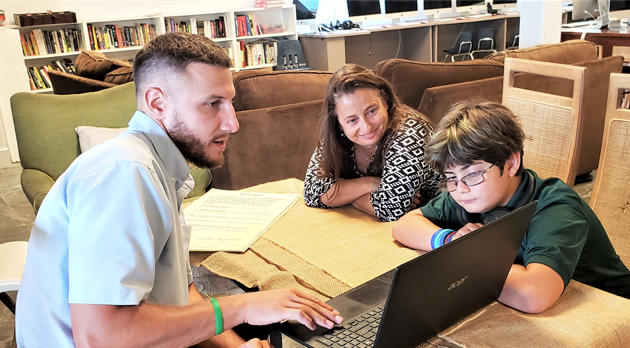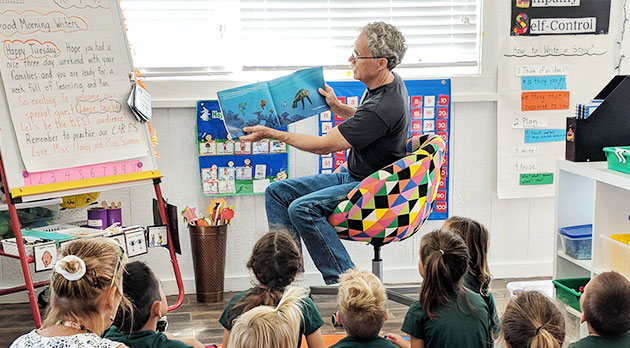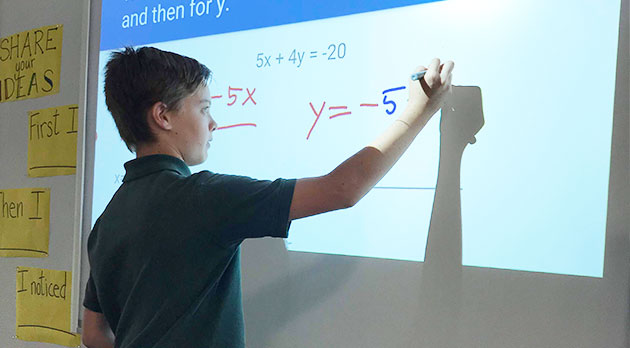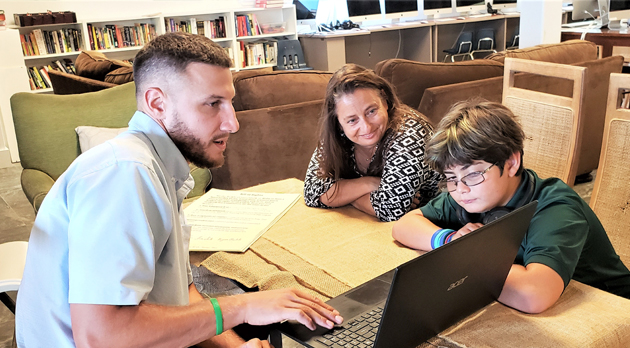
Secrets to a Successful Parent-Teacher Relationship
The parent-teacher partnership is critical to a success in education. I have always argued that no boarding school can ever top a great day school because the latter allows for a close partnership between parents and teachers in educating a child. Educators almost universally regard parent involvement as one of the most critical elements in successful academic intervention. Yet, the partnership between parents and teachers in education is not always the most comfortable or easy one to manage. Moreover, in international school settings, the relationship is further complicated by the differences in cultural norms and understandings that exist in a multicultural community. Without the knowledge as to how best to handle the partnership, we often observe two extremes in the parents’ involvement in their children’s education. At one extreme, we have overprotective and overly involved parents who hover — “helicopter-like” — over their children at school to see how they are doing. The “helicopter parents” rob their children of the opportunity to solve problems themselves and put teachers on the defensive. At the other extreme are parents who shy away from involvement at all. Even when their children face problems (social or academic) at school, they either believe no involvement is the best solution or hold back for fear of irritating teachers and sparking retaliation against their children. The truth is that teachers can feel lost in this relationship as well. Teachers often feel vulnerable and can get stressed about their professionalism being put on scrutiny.
I found a helpful article in The New York Times about how to reduce the mutual anxieties and establish and maintain the kind of trust that is essential to respectful and productive parent-teacher relationships. It is written by a sixth-grade teacher, Sara Mosle, who likens the teacher-parent relationship to an arranged marriage. She says,“[n]either side gets a lot of say in the match. Both parties, however, share great responsibility for a child, which can lead to a deep rewarding partnership or the kind of conflict found in some joint-custody arrangements.” I would agree — the relationship is sometimes that difficult and should not be taken lightly. Here are some of her ideas that I think are worth considering:
1. Parents should encourage their children to take the lead in sorting out difficulties with teachers.
Like all challenges, our children’s difficulty with their teachers presents a “teachable moment.” Life is full of having to work with diverse people — furthermore, those with authority and power. When parents intervene on their children’s behalf every time, they are voiding them of the opportunity to robustly mature and build confidence in resolving the issue on his or her own. Yes, we need to accept the risk of our children failing to resolve the issue at hand. This sort of calculated risk taking is what Paul Tough argues to be important training in character-building to ensure our children’s future success (“How Children Succeed: Grit, Curiosity, and the Hidden Power of Character”).
2. Parents and teachers should use email and text messages only to convey simple information like appointments or scheduled absences.
For anything more substantive, especially if one party is annoyed or angry, it’s better to pick up the phone or, better yet, speak in person. Conflicts can escalate in email exchanges in ways that would never happen speaking face to face. With email, it is also very difficult to gauge how prepared the other person is to receive the message when the email arrives.
3. The principal or other administrators should not be cc’ed when emailing about routine issues.
According to Palo Alto superintendent Kevin Skelly (as quoted in the article), “It’s disrespectful to teachers and parents alike, as it sends the message you don’t think there’s even a chance you can work this out on your own.” There are clearly issues that must be brought to the attention of the administrators right away. It just means one should be deliberate about when and what type of issues are to be brought to the attention of the principal or other administrators.
4. Teachers should respond to parent communications promptly, even if it’s a brief acknowledgement and a request for some time to solve a problem.
APIS parents have the right to demand timely responses to their inquiries. When the parents have difficulty getting responses from their teachers, they should let the principal or other administrators know so that corrective measures can be taken. For the parents’ part, they should appreciate that teachers are busy during the day and may have other responsibilities after school. “My students know that I’m unlikely to respond to an email between the hours of 6 p.m. and 9 p.m.,” says Mosle, “as that’s when I’m focusing on being a parent to my own child.”
5. Immediately apologize when we drop the ball.
“Nothing is more disarming,” says Skelly, “and it’s so simple to do.” Unlike in the Western culture, apologies are not used mainly to acknowledge one’s fault. In Asian culture, apologies are used more freely as a gesture for reconciliation and an expression of sympathy.
6. Teachers and parents should emphasize and build on children’s strengths.
Mosle confesses that she doesn’t do this enough as a teacher, and urges everyone, “If you have something positive to say, say it early and often.”
7. When there are conflicts, parents and teachers should present specific desired outcomes that will help the child do better.
It is amazing how easily a difficult conflict can be solved when we focus simply our attention to what is in the best interest of our children’s learning.
8. Parents and teachers should proceed with humility.
Parents should take with a grain of salt occasional bellyaching about his teachers by a child, especially a teenager. “Most teenagers are in some kind of opposition of authority as they struggle to grow up,” says Mosle. Furthermore, the information provided by your child represents only one data point.
Lastly, I would like to add to Ms. Mosle’s list the following:
9. In the event of a problem or conflict, the parent should talk directly to the teacher (or the administrator) with whom the parent has a problem, or who is responsible for the problem, without gossiping to other parents.
Sometimes issues escalate or misunderstandings proliferate unnecessarily just because the problem is not addressed immediately and directly with the teacher or the administrator. Language barriers sometimes pose a challenge, but, nonetheless, concerted efforts need to be made in order to ensure communications occur effectively. This means not just talking to a local staff person to pass on the information but speaking directly, face to face with the teacher and/or the administrator with the help of a translator. When talking face to face, we communicate more than just with our words, and we can make sure the message is delivered directly to the right person.
Reference:
Mosle, S. (2013, Jan.13). The Parent-Teacher Trap. The New York Times.











